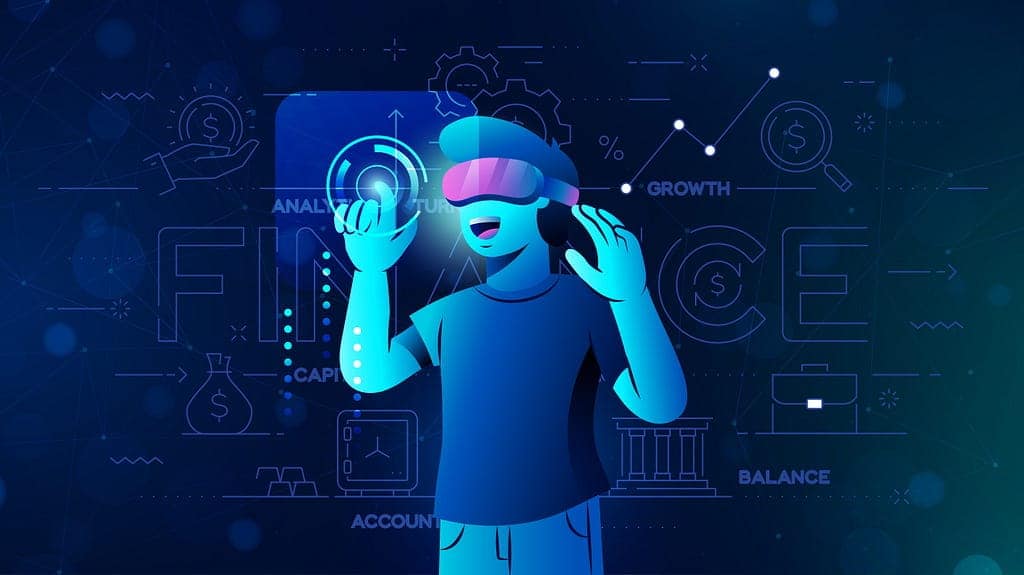The Metaverse Economy: Opportunities and Challenges for Businesses and Entrepreneurs
- wtsverse
- July 25, 2023
The Rise of the Metaverse
The metaverse is rapidly emerging as a new frontier in the digital realm. It encompasses virtual worlds, augmented reality, and other immersive experiences that allow users to interact and engage in various activities. With advancements in technology and the increasing popularity of virtual reality devices, the metaverse has transitioned from science fiction to a tangible reality.
2. Opportunities in the Metaverse Economy
2.1 Virtual Real Estate
Just as physical real estate holds value, virtual real estate within the metaverse presents a lucrative opportunity. Companies and individuals can acquire virtual land or properties and develop them into virtual spaces for commerce, entertainment, and social interactions. Virtual real estate can be monetized through rentals, advertisements, and partnerships, creating a virtual economy within the metaverse.
2.2 Digital Goods and Services
The metaverse offers a thriving marketplace for digital goods and services. From virtual fashion items and accessories to customized avatars and digital art, entrepreneurs can tap into the growing demand for unique and personalized virtual assets. Additionally, service-based businesses such as virtual event planning, virtual consulting, and virtual education can flourish in the metaverse.
2.3 Advertising and Marketing
As the metaverse attracts a vast user base, businesses can leverage it as an advertising and marketing platform. Brands can create immersive experiences and interactive campaigns within the metaverse, allowing users to engage with their products or services in a novel way. Targeted advertising and product placements in virtual environments can provide businesses with valuable exposure and brand recognition.
2.4 Virtual Events and Experiences
The metaverse opens up boundless possibilities for hosting virtual events and experiences. From virtual concerts and conferences to immersive storytelling and gaming experiences, businesses can captivate audiences and offer unique interactions. Virtual events can attract global participants, eliminate geographical limitations, and provide new revenue streams through ticket sales and sponsorships.
2.5 E-commerce and Retail
E-commerce and retail are not confined to the physical world anymore. With the metaverse, businesses can establish virtual storefronts and engage with customers in a visually rich and interactive environment. Virtual shopping experiences, personalized recommendations, and seamless transactions can enhance customer engagement and drive sales within the metaverse.
3. Challenges in the Metaverse Economy
3.1 Privacy and Security
As users immerse themselves in the metaverse, privacy and security become critical concerns. Businesses must prioritize data protection, secure transactions, and user privacy to build trust among metaverse participants. Implementing robust security measures and educating users about potential risks are vital steps towards ensuring a safe and secure metaverse ecosystem.
3.2 Infrastructure and Access
Widespread access to high-speed internet and compatible devices is essential for the metaverse economy to thrive. Businesses and entrepreneurs need to consider the availability and affordability of infrastructure to enable seamless connectivity. Bridging the digital divide and addressing infrastructure challenges will contribute to the inclusivity and accessibility of the metaverse.
3.3 Intellectual Property Rights
The metaverse raises complex issues related to intellectual property rights. As businesses create and sell virtual assets, protecting copyrights, trademarks, and patents becomes crucial. Establishing clear guidelines and legal frameworks for intellectual property within the metaverse is necessary to foster innovation and safeguard the rights of content creators and businesses.
3.4 User Adoption and Fragmentation
The success of the metaverse economy relies on widespread user adoption. Overcoming the barrier of user adoption and ensuring a seamless user experience across different platforms and virtual worlds is a significant challenge. Businesses and entrepreneurs must focus on creating intuitive interfaces, enhancing interoperability, and offering compelling experiences to attract and retain users.
3.5 Regulatory and Legal Frameworks
With the metaverse blurring the boundaries between physical and digital realms, regulatory and legal frameworks must adapt accordingly. Governments and policymakers need to address the unique challenges posed by the metaverse, including taxation, virtual property rights, and consumer protection. Establishing comprehensive and forward-thinking regulations will provide a stable foundation for metaverse-based businesses.
4. Building a Successful Metaverse Business
4.1 Understanding the Target Audience
To build a successful metaverse business, understanding the target audience is essential. Conduct market research and identify the needs, preferences, and behaviors of potential users within the metaverse. This knowledge will help tailor products, services, and experiences that resonate with the target audience.
4.2 Creating Engaging Experiences
The metaverse thrives on immersive and engaging experiences. Invest in creating captivating virtual environments, interactive gameplay, and social interactions that keep users coming back for more. Incorporate elements of surprise, personalization, and social connectivity to make the metaverse experience memorable and enjoyable for users.
4.3 Collaborating and Partnering
Collaboration and partnerships are instrumental in the metaverse economy. Seek opportunities to collaborate with other businesses, content creators, and technology providers to enhance your offerings. By leveraging synergies and combining expertise, you can create innovative and compelling metaverse experiences that attract a broader audience.
4.4 Monetization Strategies
Developing effective monetization strategies is crucial for sustaining a metaverse business. Explore revenue streams such as virtual asset sales, subscriptions, in-app purchases, and partnerships. Experiment with different models to find the right balance between generating revenue and providing value to users within the metaverse.
4.5 Staying Agile and Adaptable
The metaverse is an evolving landscape, and businesses must remain agile and adaptable. Embrace emerging technologies, user feedback, and market trends to continuously improve and refine your offerings. By staying ahead of the curve, you can seize new opportunities and overcome challenges in the ever-changing metaverse economy.
5. Conclusion
The metaverse presents an exciting frontier for businesses and entrepreneurs. With its vast potential and immersive experiences, the metaverse economy offers opportunities for innovation, growth, and revenue generation. However, it also brings forth challenges that need to be addressed, including privacy concerns, infrastructure limitations, intellectual property rights, user adoption, and regulatory frameworks. By understanding the intricacies of the metaverse economy and implementing effective strategies, businesses can position themselves for success in this emerging digital landscape.

